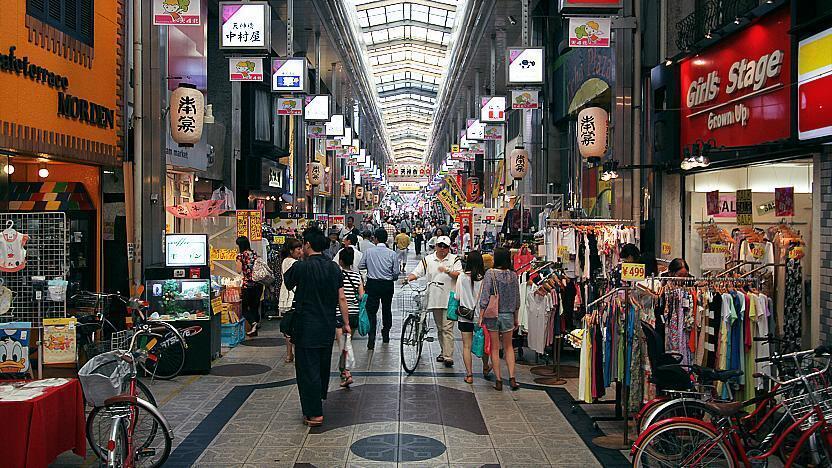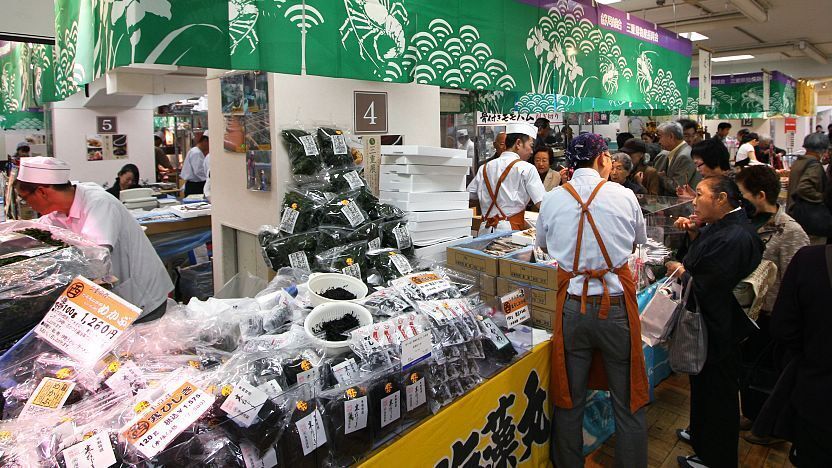How to Shop

Shopping in Japan is usually a pleasant experience. The sales staff are generally polite, friendly and attentive, and great care is taken to provide a high level of customer service. Although foreign language services are rarely available, some stores that regularly serve foreign customers may have some staff that speak English or other languages.
Shopping hours and closures
In general, large shops and department stores are open daily from 10:00 to 20:00. Smaller stores and shops around tourist attractions may have shorter hours. Most stores are open on weekends and national holidays (except January 1 when many stores close). Large chain stores open everyday, however smaller independent stores may close one day a week or month.
Greeting
When you walk into a store, the sales staff will greet you with the expression "irasshaimase" meaning "welcome, please come in". Customers are not expected to respond.

Consumption tax and tax-free shopping
Consumption tax in Japan, known in other countries as VAT, GST or sales tax, is a flat 10 percent on all items except food, drinks and newspaper subscriptions for which it is 8 percent (not including alcoholic drinks and dining out). Shops are required to show price tags that include the tax; however, pre-tax prices may also be listed alongside the total amounts, resulting in some price tags that list two prices.
Tax-free shopping is available to foreign tourists at licensed stores when making purchases of over 5000 yen at a given store or mall on one calendar day. A passport is required when shopping tax-free. Note that at many shops, it is necessary to first pay the full price (including the consumption tax) at the cashier and then obtain a refund at a customer service desk.
Because some visitors have been abusing the system by illegally reselling purchased goods within Japan, the government will change the system into one in which customers will pay the full, tax-inclusive price at the shop and get a refund only after it could be confirmed that the purchased items were taken out of the country at the airport upon departure. The changes are scheduled to be put into effect on November 1, 2026.
Be aware that goods purchased in Japan may be subject to import duties in your home country. Also be aware of the differences in operating voltages, language settings and other standards that may exist in products bought in Japan.
Payment
Cash is accepted everywhere, and it is usually no problem to use large bills to pay for small items, except at small street vendors or dusty mom and pop shops. Japanese yen can be withdrawn from foreign bank accounts through ATMs.
Although not as universally accepted as cash, credit cards can also be used in most shops, especially major retail stores, electronics shops and department stores. Visa, Mastercard, JCB, American Express and Union Pay are among the most widely accepted types of cards.
Suica and other IC cards as well as other mobile payment methods are also accepted widely for purchases at shops and restaurants across Japan.

Shopping manners
- When paying, put the money onto the provided tray (preferably with bills neatly unfolded). Your change may be returned in the same way.
- Bargaining is neither common nor appreciated in most stores.
Wrapping
Once you have paid for an item, it will be bagged or marked with colored tape. Many stores will charge a few yen for bags. Clothing stores, department stores and gift shops, among others, will wrap your items if you indicate that they are for a gift. While this is often a free service, some stores charge a minimal fee for wrapping.
Questions? Ask in our forum.